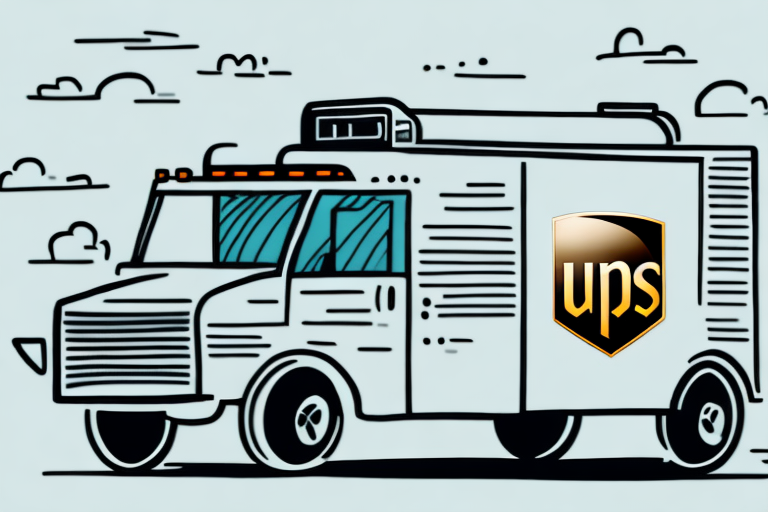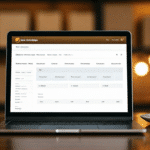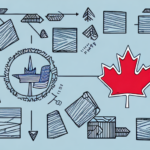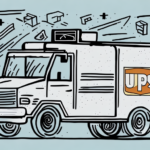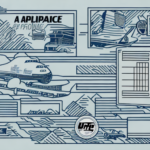Understanding the UPS Not Previously Billed Standard
If you are a business owner who frequently ships packages using UPS, you may have noticed charges on your invoice classified as Not Previously Billed (NPB). These NPB charges relate to the UPS Not Previously Billed Standard, a complex aspect of the shipping process that many find challenging to navigate. This article delves into the UPS Not Previously Billed Standard, its impact on your shipping costs, and offers strategies to prevent these additional charges, helping you manage your shipping expenses more effectively.
What is the UPS Not Previously Billed Standard?
The UPS Not Previously Billed Standard is a policy UPS employs to assess additional charges for shipments requiring extra handling or adjustments after initial processing. This policy typically applies when shipments are billed at a lower rate due to incomplete or inaccurate shipping information provided by the sender. Utilizing advanced technology, UPS identifies shipments needing further attention, such as those with incomplete delivery addresses or oversized dimensions, and adjusts billing accordingly.
It's crucial to understand that the UPS Not Previously Billed Standard can lead to unexpected fees for senders. When a shipment is flagged for additional handling, an extra charge may be added to the original shipping cost. To avoid these unforeseen expenses, ensure that all shipping information is accurate and comprehensive.
Moreover, this standard helps UPS enhance delivery efficiency and effectiveness. By pinpointing shipments that need further adjustments, UPS can address issues proactively, ensuring timely and intact deliveries. This not only boosts customer satisfaction but also reduces the risk of lost or damaged parcels.
How Does the UPS Not Previously Billed Standard Affect Your Shipping Charges?
The UPS Not Previously Billed Standard significantly influences your overall shipping costs. NPB charges are calculated based on the initial shipping rate plus any additional fees resulting from necessary adjustments. Over time, these charges can accumulate, especially for businesses with high shipping volumes, impacting your budget and profitability.
It's important to note that the NPB Standard isn't a new fee but a mechanism to ensure accurate billing for services rendered. The NPB process is triggered when discrepancies arise between the original shipping information and the actual package details, such as weight, dimensions, or destination. While this can be frustrating, it ensures fair and precise pricing for all customers.
The Reasons You May See UPS Not Previously Billed Charges on Your Invoice
Several factors can lead to UPS Not Previously Billed charges appearing on your invoice:
- Incomplete or Inaccurate Shipping Information: Missing delivery addresses or incorrect package weight and dimensions can prompt UPS to adjust shipping rates, resulting in additional charges.
- Oversized Packages: Shipments that exceed standard size or weight limits often require extra handling.
- Special Handling Requirements: Items needing signature confirmation, insurance, or other special services may incur extra fees.
- Rerouted or Redirected Shipments: Changes in shipping routes or destinations post-processing can lead to additional costs.
- Customs and Duty Fees: International shipments may face customs duties or taxes, appearing as NPB charges.
To minimize these charges, always provide complete and accurate shipping details and review your invoices carefully. If you have questions or concerns, contacting UPS directly can help clarify any unexpected fees.
How to Avoid UPS Not Previously Billed Charges
Preventing UPS Not Previously Billed charges primarily involves ensuring that your shipping information is thorough and precise. Here are some effective strategies:
- Accurate Shipping Information: Provide complete delivery addresses, correct package weights, and precise dimensions.
- Collaborate with UPS Representatives: Work closely with your UPS contact to identify and address potential issues before shipments are processed.
- Utilize UPS Online Tools: Tools like the UPS Shipping Calculator can help you estimate costs accurately and track your packages efficiently.
- Automated Billing Systems: Enrolling in UPS’s automated billing can ensure your invoices are accurate and up-to-date, reducing the likelihood of unexpected charges.
By implementing these practices, you can significantly reduce the risk of incurring NPB charges and maintain better control over your shipping expenses.
The Impact of UPS Not Previously Billed Charges on Your Budget and Bottom Line
NPB charges can adversely affect your business budget, especially for companies with frequent or large shipments. These additional fees can quickly accumulate, posing challenges in managing overall shipping costs effectively. Proactively addressing NPB charges by verifying shipping information and utilizing UPS resources is essential to mitigate their financial impact.
Beyond financial implications, NPB charges can influence customer satisfaction. Unexpected fees added to customer bills may lead to frustration and dissatisfaction, potentially harming your business reputation and resulting in lost clientele. Therefore, managing NPB charges is not only vital for financial health but also for maintaining positive customer relationships.
Frequently Asked Questions About UPS Not Previously Billed Standard
- Q: What types of shipments are affected by the UPS Not Previously Billed Standard?
- A: The UPS Not Previously Billed Standard applies to shipments requiring additional handling or adjustments post-processing due to incomplete or inaccurate shipping information.
- Q: How are UPS Not Previously Billed charges calculated?
- A: NPB charges are based on the original shipping rate plus any additional fees incurred from required adjustments.
- Q: Can I dispute UPS Not Previously Billed charges on my invoice?
- A: Yes, you can dispute NPB charges if you believe they are incorrect. Collaborate with your UPS representative to resolve potential issues in advance to avoid disputes.
- Q: How can I prevent UPS Not Previously Billed charges from appearing on my invoice?
- A: Ensure all shipping information is accurate and complete before processing. Verify recipient addresses, package weights, dimensions, and any special handling requirements.
- Q: What happens if I do not pay UPS Not Previously Billed charges?
- A: Unpaid NPB charges may incur late fees and interest. Additionally, UPS may place a hold on future shipments until the outstanding balance is settled.
Tips for Managing Your Shipping Costs with the UPS Not Previously Billed Standard in Mind
Effectively managing shipping costs under the UPS Not Previously Billed Standard involves several proactive steps:
- Ensure Accurate Shipping Information: Double-check all shipping details to minimize the chances of adjustments and additional fees.
- Collaborate with UPS Representatives: Regular communication with your UPS contact can help identify and resolve potential issues before they affect your invoices.
- Leverage UPS Online Tools: Utilize UPS’s online platforms to manage shipments, track packages, and monitor NPB charges accurately.
- Regular Invoice Reviews: Frequently review your invoices to spot and rectify discrepancies or errors promptly.
- Stay Informed on Policy Updates: Keep up-to-date with any changes to the NPB policy to understand how they may impact your shipping costs.
Implementing these strategies will help you maintain control over your shipping expenditures and avoid unexpected charges, ensuring your business remains financially healthy.
Understanding the Billing Process for UPS Shipments with the Not Previously Billed Standard
The billing process for UPS shipments under the Not Previously Billed Standard can be intricate. To navigate it effectively:
- Collaborate with Your UPS Representative: Work closely with your UPS contact to gain a comprehensive understanding of the billing process and ensure accurate charges.
- Detailed Invoice Reviews: Examine your invoices meticulously to identify any potential errors or discrepancies related to NPB charges.
- Utilize Online Management Tools: Use UPS’s online resources to monitor and track your shipments and associated NPB charges in real-time.
Keep in mind that the NPB Standard may vary based on shipment type and destination. For instance, international shipments might have different rules and fees compared to domestic ones. Staying informed about these variations and ensuring compliance with all applicable regulations is essential for accurate billing.
Real-Life Scenarios Demonstrating How UPS Not Previously Billed Charges Can Add Up Over Time
To illustrate the financial impact of NPB charges:
- Scenario: A business ships 100 packages weekly at an average rate of $10 per package.
- NPB Rate: Assuming a 5% NPB rate.
- Monthly Additional Charges: 100 packages x $10 x 5% = $50 per week → $200 per month.
- Annual Impact: $200 monthly × 12 months = $2,400 in additional charges annually.
Such incremental costs can significantly affect a business's budget and profitability, underscoring the importance of managing and minimizing NPB charges.
Conclusion
The UPS Not Previously Billed Standard is a nuanced component of the shipping process that can considerably influence your shipping expenses. By thoroughly understanding this policy and adopting proactive measures to manage shipping information and costs, you can prevent unexpected charges, maintain control over your budget, and ensure the financial health of your business.















